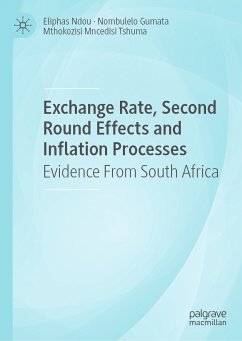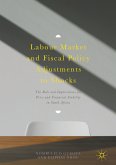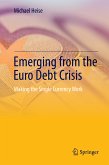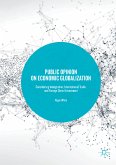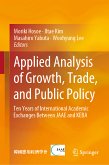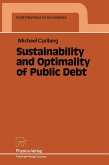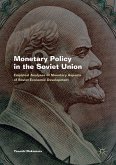This book focuses on the exchange rate pass-through (ERPT), second round effects and the inflation process in South Africa. The authors demonstrate that magnitudes of the second round effects of the exchange rate depreciation and oil price shocks depend on inflation regimes. The impact of positive oil price shocks on inflation is weakened by monetary policy credibility. Evidence shows the influence of oil price on unit labour costs and correlation between exchange rate changes and inflation has weakened. In addition, ERPT is reduced by low business and consumer confidence, high trade openness, low inflation and high exchange rate volatility which weaken real economic activity. Both monetary and fiscal policy credibility lowers the sizes of ERPT to inflation and inflation expectations. Fiscal policy via fuel levies, administered prices and public transport inflation channel impacts the responses of monetary policy to inflation shocks. The authors show that second round effects contribute very little to wage inflation following an exchange rate depreciation shock. Both lending rate and household consumption responds asymmetrical to repo rate changes.
This book will appeal to policymakers, students, academics and analysts.
Dieser Download kann aus rechtlichen Gründen nur mit Rechnungsadresse in A, B, BG, CY, CZ, D, DK, EW, E, FIN, F, GR, HR, H, IRL, I, LT, L, LR, M, NL, PL, P, R, S, SLO, SK ausgeliefert werden.

